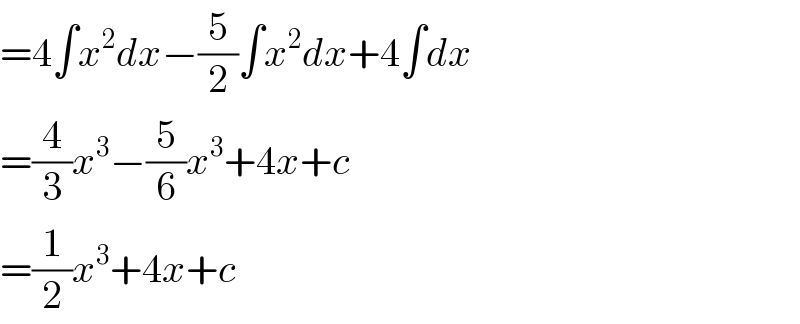
Question Number 4594 by alimyao last updated on 10/Feb/16

$$\int\mathrm{4}{x}^{\mathrm{2}} \:−\:\frac{\mathrm{5}}{\mathrm{2}{x}^{−\mathrm{2}} }\:+\:\mathrm{4}\:\:{dx},\:{x}\neq\mathrm{0} \\ $$$$ \\ $$
Answered by FilupSmith last updated on 10/Feb/16

$$=\mathrm{4}\int{x}^{\mathrm{2}} {dx}−\frac{\mathrm{5}}{\mathrm{2}}\int{x}^{\mathrm{2}} {dx}+\mathrm{4}\int{dx} \\ $$$$=\frac{\mathrm{4}}{\mathrm{3}}{x}^{\mathrm{3}} −\frac{\mathrm{5}}{\mathrm{6}}{x}^{\mathrm{3}} +\mathrm{4}{x}+{c} \\ $$$$=\frac{\mathrm{1}}{\mathrm{2}}{x}^{\mathrm{3}} +\mathrm{4}{x}+{c} \\ $$
